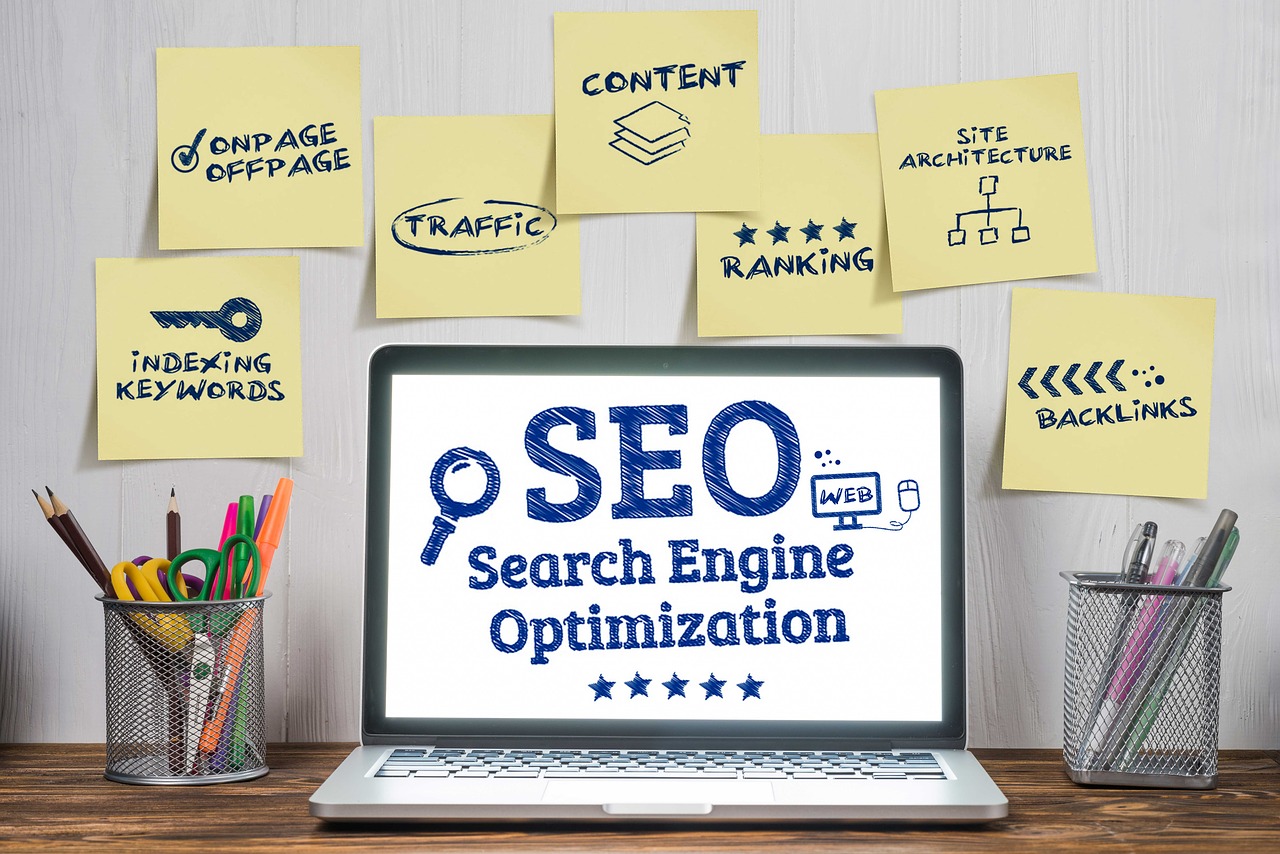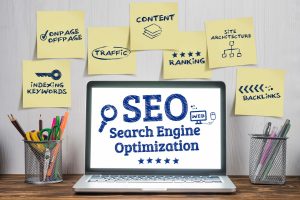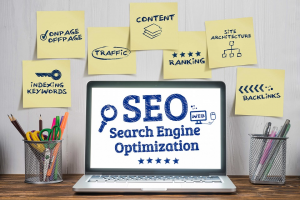
LLM SEO refers to optimizing content for search engines incorporating Large Language Models (like ChatGPT, Bard, or Bing AI). These models influence search experiences through conversational interfaces, generative answers, and contextual understanding. With LLM SEO, the focus is on enhancing how AI understands, generates, and ranks content.
📌 Key Characteristics
- Conversational Optimization:
- Users interact with AI models using natural language questions.
- Content needs to be structured to cater to long-tail conversational queries.
- Entity Recognition & Contextual Understanding:
- LLMs excel at understanding relationships between entities, concepts, and context.
- Keyword stuffing is ineffective; instead, semantic richness and relevance matter.
- Content Generation & AI Readability:
- AI-generated summaries or snippets are now a part of search results.
- Structuring content so LLMs can accurately summarize it is crucial.
- Zero-Click Search Handling:
- With AI providing direct answers, optimizing content to be featured or cited by models is important.
- User Intent & Experience Optimization:
- LLMs understand broader user intent and can infer what users need even with vague queries.
- Creating content that addresses varied user intents within a topic cluster is essential.
What Is Conventional SEO?
Conventional SEO is the traditional approach to search optimization, focusing on search engines like Google, Bing, etc., using standard algorithms without AI conversational interfaces.
📌 Key Characteristics
- Keyword Targeting:
- Researching and targeting specific keywords for ranking.
- Importance of keyword density, LSI keywords, and relevance.
- Backlink Building:
- Earning quality links from authoritative websites to improve ranking.
- Link-building strategies include guest posting, PR, outreach, etc.
- Technical Optimization:
- Ensuring fast loading speeds, mobile responsiveness, structured data, etc.
- Optimizing website architecture for crawlability and indexing.
- On-Page Optimization:
- Crafting well-structured meta titles, descriptions, headers, etc.
- Focus on keyword placement, readability, and user engagement signals.
- Content Creation:
- Creating high-quality, relevant, and updated content.
- Typically aimed at ranking content in organic results and driving traffic.
🔍 LLM SEO vs. Conventional SEO – Key Differences
| Aspect | LLM SEO | Conventional SEO |
|---|---|---|
| Content Structure | Conversational, intent-based, AI-readable | Keyword-focused, structured for algorithms |
| User Interaction | AI-driven, often zero-click responses | Click-based page visits are crucial |
| Keyword Targeting | Contextual, entity-centric, semantic focus | Exact match keywords, LSI keywords |
| Content Creation | Optimized for AI interpretation | Optimized for traditional ranking |
| Link Building | Less emphasis (AI may reference content directly) | Essential for authority building |
| Ranking Signals | Semantic relevance, authority, context | Backlinks, keywords, meta tags, etc. |
| User Experience | AI-driven conversational engagement | Traditional on-page UX optimizations |
📈 Best Practices for LLM SEO
- Topic Clustering: Creating comprehensive content around a central theme to enhance AI comprehension.
- Conversational Formatting: Including FAQs, dialogue-style Q&A, and natural language responses.
- Entity Optimization: Structuring content to clearly define and relate entities.
- Structured Data Usage: Making information easily parseable by AI models.
- Optimizing for AI Summarization: Ensuring your content can be easily summarized without losing meaning.
🔥 What Exactly Is LLM SEO? (A Deeper Dive)
LLM SEO (Large Language Model SEO) is the practice of optimizing digital content to be effectively understood, ranked, and cited by AI-powered search engines and models like ChatGPT, Google Bard, Bing AI, and similar tools. Unlike conventional SEO, which targets algorithms through keywords, backlinks, and metadata, LLM SEO focuses on how these AI models process, interpret, and generate responses from content.
🌟 Why LLM SEO Matters Now
- AI Models Are Becoming Gatekeepers: As LLMs integrate more deeply into search engines (e.g., Bing Chat, Google SGE), they increasingly act as intermediaries between users and content.
- Rise of Zero-Click Searches: AI models often provide direct answers without users clicking through to websites, reducing organic traffic but enhancing the importance of being referenced by AI.
- New Content Discovery Paradigms: Instead of users searching for content, AI-driven tools recommend or cite content dynamically.
📌 Core Concepts of LLM SEO
1. Conversational Search Optimization
- Users interact with AI models using natural, question-based phrasing (e.g., “What’s the best way to boost LLM SEO for WordPress?”).
- Implication: Your content needs to provide clear, conversational answers to be referenced or summarized by AI models.
2. Semantic Understanding & Contextual Relevance
- LLMs do not just parse keywords—they understand relationships, context, entities, and nuanced meanings.
- Content should be structured to provide rich, relevant information that covers multiple angles of a topic.
- Examples of Semantic SEO Techniques:
- Including contextually related keywords and phrases.
- Providing comprehensive content that covers broader topics instead of just targeting narrow keywords.
- Using schema markup to define entities and relationships.
3. Entity Optimization
- Entities are specific, recognizable concepts like brands, people, topics, places, or events.
- LLMs use entities to connect concepts and retrieve relevant information accurately.
- To optimize for entities:
- Mention key entities frequently and consistently.
- Use structured data markup (e.g., Schema.org) to define entities clearly.
- Link entities contextually to enhance topic authority.
4. Structured Data & Schema Markup
- Structured data helps LLMs understand the context and structure of your content.
- Schema Markup Types to Use:
- FAQ Schema (for Q&A sections).
- Article Schema (for blog posts).
- HowTo Schema (for step-by-step guides).
- Product Schema (if you are selling or reviewing products).
5. Content Summarization Optimization
- LLMs often summarize your content to answer user queries directly.
- To make your content summary-friendly:
- Include a TLDR or key takeaways section at the beginning of articles.
- Use structured headings and subheadings to guide LLMs through your content.
- Provide succinct, well-structured answers within the body of your content.
6. Prompt Engineering for AI Compatibility
- Users are often prompted to ask questions to AI tools (e.g., ChatGPT, Bard) in a specific manner.
- Tailoring your content to anticipate how users will phrase their questions can improve your chances of being referenced.
- Example Prompts To Target:
- “What’s the best way to…?”
- “How can I improve…?”
- “Top tools for…”
- “Explain [Concept] like I’m 5.”
7. Hybrid SEO Approach (LLM + Conventional SEO)
- Content Quality & Relevance: Write detailed, valuable content targeting both AI models and traditional algorithms.
- Backlinks Still Matter: While LLMs may bypass direct clicks, backlinks still contribute to authority signals used by traditional search engines.
- Technical SEO Remains Relevant: Structured data, sitemaps, and site speed are still important for accessibility and crawlability.
🔥 Practical Tips for Implementing LLM SEO
- Focus on Natural Language Phrasing: Write your content as if answering a direct question from a user.
- Enhance Content with FAQ Sections: Incorporate conversational Q&A blocks throughout your articles.
- Utilize Schema Markup: Use tools like Rank Math or Yoast to add structured data to your WordPress blog.
- Write for Summarization: Add concise summaries at the top of your posts.
- Keep Entities Clear & Consistent: Ensure your key topics are defined and interconnected clearly.
🌟 LLM SEO Strategy for WordPress Blog
1. 🔍 Keyword & Topic Research (Conversational Focus)
- Tools to Use: ChatGPT, Google Bard, AnswerThePublic, Semrush, Ahrefs.
- Objective: Identify how users phrase questions conversationally.
- Steps:
- Research long-tail keywords framed as natural questions (e.g., “How do I…”, “What is the best way to…”)
- Map out topic clusters—related subtopics branching from a main pillar topic.
- Prioritize entity-centric keywords (e.g., brand names, product types, specific concepts) over generic terms.
2. 📑 Content Creation & Optimization
- Objective: Create AI-friendly, semantically rich content that answers conversational queries.
- Steps:
- Write Q&A-structured content: Incorporate FAQs, bullet points, and subheadings with natural language phrasing.
- Use semantic SEO: Focus on concepts and context rather than mere keywords.
- Include rich snippets (structured data): Use plugins like Rank Math or Yoast SEO to easily add schema markup.
- Add summarization-friendly content: Create concise, relevant summaries or TLDRs at the beginning of articles.
3. 📄 Content Structure & Formatting
- Objective: Enhance AI interpretation and user experience.
- Steps:
- Use a hierarchical heading structure (H1, H2, H3) to guide LLMs through the content.
- Incorporate “Conversational Blocks”:
- Add conversational Q&A sections.
- Create articles that resemble dialogue or discussion formats.
- Use internal linking between related articles to enhance topical authority.
4. 🏷️ Entity Optimization
- Objective: Improve how LLMs identify, relate to, and retrieve your content.
- Steps:
- Clearly define key entities (products, topics, concepts) in your content.
- Use tools like Google’s NLP API or SurferSEO to identify important entities to cover.
- Consistently mention and link these entities throughout your blog.
5. 💡 Technical SEO Enhancements
- Objective: Make your WordPress blog easily accessible to AI models.
- Steps:
- Install plugins like Rank Math or Yoast SEO for structured data management.
- Enable XML sitemaps and ensure they’re submitted to search engines.
- Improve site speed and mobile responsiveness.
- Implement Schema Markup for rich snippets (FAQs, How-Tos, Reviews).
6. 📢 Promotion & Link Building
- Objective: Improve content authority and reach.
- Steps:
- Promote your content through social media, newsletters, and relevant communities.
- Build high-quality backlinks from reputable websites.
- Encourage other bloggers or websites to reference your content as a resource.
7. 📈 Tracking & Optimization
- Objective: Continuously refine your LLM SEO strategy.
- Steps:
- Monitor performance using Google Analytics, Google Search Console, and Ahrefs.
- Track how your content is being cited or referenced by AI tools (e.g., Bard, Bing AI).
- Regularly update content to stay relevant and aligned with evolving AI models.
✅ Plugins & Tools To Use
- Rank Math or Yoast SEO: For schema markup, content optimization, and general SEO management.
- Content AI Tools (ChatGPT, Jasper, SurferSEO): For generating content ideas and optimizing for LLMs.
- Google Search Console: To monitor how your site appears in search results.
- WordLift or Schema Pro: For advanced structured data and entity optimization.
🌟 Why LLM SEO Won’t Replace Conventional SEO
1. 📈 Continued Importance of Traditional Search Engines
- Google, Bing, and other search engines still drive massive amounts of organic traffic.
- Traditional search engines rely on crawler-based indexing, backlink analysis, and technical factors (site speed, mobile responsiveness, etc.).
- Even with AI integrations, classic search algorithms continue to play a significant role in rankings.
2. 🔗 Backlink Signals Remain Crucial
- Backlinks are a fundamental metric of authority and trust that LLMs don’t fully replace.
- Search engines use backlinks to evaluate domain authority and content relevance.
- While LLMs can reference content without direct links, traditional SEO signals will still influence visibility and credibility.
3. 📑 Technical SEO Is Still Essential
- Proper site structure, XML sitemaps, mobile optimization, SSL security, and load speed are still vital.
- Search engines need these elements to crawl, index, and rank sites effectively.
- LLMs rely on well-organized and accessible content to function optimally.
4. 🔍 Not All Searches Are Conversational
- Conventional SEO works well for navigational and transactional queries (e.g., “buy Nike shoes online”).
- LLMs are more focused on informational and conversational queries.
- Searchers still prefer direct links to pages for certain types of queries (e.g., ecommerce, specific reviews, or technical guides).
5. 📣 Monetization & Branding
- Websites need visitors for ads, affiliate marketing, lead generation, and sales.
- LLMs providing answers without clicks could harm revenue unless integrated with content discovery systems that still drive traffic.
- Conventional SEO ensures websites remain discoverable in a structured way that benefits monetization.
🔑 The Future: A Hybrid SEO Model
- Incorporating LLM SEO Tactics: Adapting content to be understood and referenced by LLMs.
- Maintaining Conventional SEO Best Practices: Building backlinks, optimizing for traditional search engines, enhancing technical SEO.
- Monitoring AI Ecosystem: Staying updated with how AI tools (like Bard, Bing AI, and ChatGPT) present and reference content.
📌 The Bottom Line:
LLM SEO will reshape SEO practices but not eliminate the core principles of conventional SEO. Instead, successful optimization will require using both methods simultaneously to reach users through traditional search and AI-generated responses.





